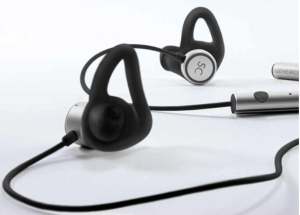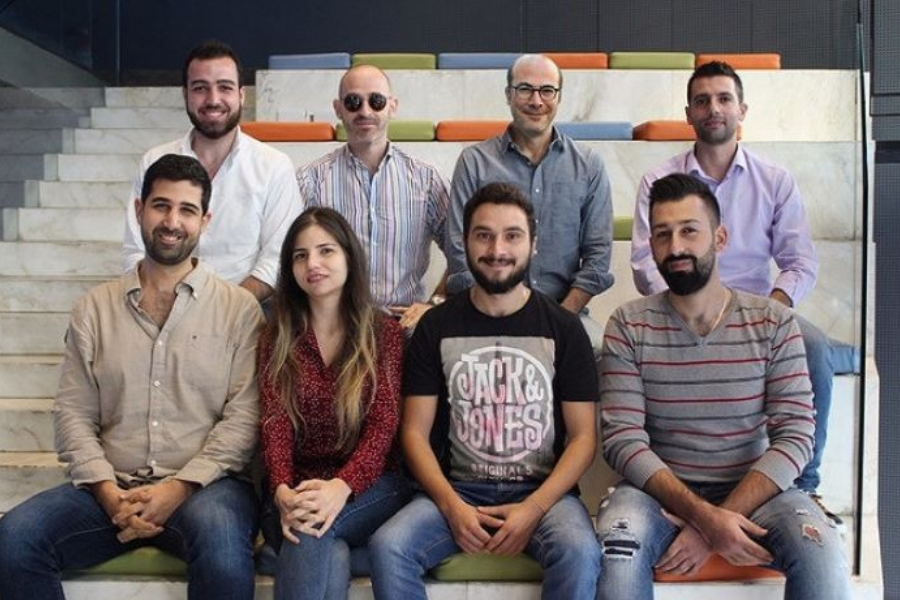The human ear is an amazing organ.
It enables us to hear the laughter of the people who are the dearest to our heart, pick up our own voice and listen to some of the best music records ever produced.
But what is more fascinating is the fact that each and every one of us perceive sounds differently, due to physiology and shape differences, according to Poppy Crum, a Chief Scientist at a British American company specializing in audio encoding and compression. So by nature, customization is necessary when it comes to producing ear-related products.
Bassel Idriss took note. A former marketing director at Procter & Gamble, he launched GENERICS in 2015, a 3D-printed and customized earphone.
Based in the UK Lebanon Tech Hub at Beirut Digital District (BDD), Idriss benefitted from the support he’s getting when it comes to the logistics, the community and the exposure. “Today I believe there’s a community at least in BDD. The startup community is starting to slowly emerge.”
In order to produce the product, users must download the GENERICS app and use the app’s camera to scan the ear closely, following the verbal instructions. After that, the team receives the measurements and starts producing.
“It is not totally 3D printed, the chassis is something that we designed and developed in Lebanon, the sound signature of our earphone is something that we develop between 3 parties: ourselves, a custom earphone-making boutique shop in Spain and a danish audio company which provides the speakers for us called Sonion”. He adds: “When a customer places an order we kick off the earfit manufacturing, because it is done to the size and shape of his ear and depending also on the color he has selected and we also get to engrave his initials with a laser machine.”
As a team of ten, including Idriss, GENERCIS’ expansion plans includes establishing multiple microfactories closer to where his consumers are. “Instead of me flying out of Beirut, [with] a product to the US or Australia, once we have enough volume in specific regions, [we] set up a microfactory in that region to produce and serve this region much better and save on logistics.”

Wireless: In or out?
With over 50 percent of the market converting to wireless earphones over the past two years, according to the founder, Idriss undoubtedly revealed plans to make the earphones wireless sometime in the future. “It is a no brainer, it’s not even a question, if we want to continue to be in this sector, we have to have a wireless version.”
Yet like everything, this technology has advantages and disadvantages, and the latters are, according to Idriss, the constant need to charge the earphones, the connectivity problem between one earpiece and the other, and the fact that wireless earphones are more expensive than the wired ones.
But being an eternal optimist, Idriss is confident that with the fast-evolving technology, these three disadvantages will be quickly resolved.
“You will start finding better batteries and wireless earphones that last for longer. With more advanced chips and with better Bluetooth technology, it will get easier to pair with your device and obviously with China coming very strongly into this, the price of wireless is dropping very quickly so it becomes more within reach to even more people,” he explained.
Going wireless will cost money nonetheless and Idriss is studying his actions very carefully. He hopes to launch a wireless version of his product by the end of 2019.
The cost of running a hardware startup
Idriss admits it’s very expensive to run a hardware startup in this part of the world, let alone a hardware and software startup.
“Hardware and software sounds cost a lot of money. The cost for running software is a lot a lot less than hardware, and GENERICS is working on both: The hardware to develop an actual earphone and to continually produce parts in Lebanon and the software where we have an app collecting data for measurement.”
The cost of 3D printing the earphone doesn’t make it any better, this is why Idriss chose to sell the product at $125 last year, but soon realized it was more than what users are willing to pay. So he decrease the price to $100.
“We dropped our price to the minimum pair today that will continue to allow us to be profitable. Today, the global average price for earphones is $43 and that’s an average between wired earphones that you can buy for $5 and wireless earphones that you can buy for $500,” he explained. “What we offer, the whole customization fit, is not like buying an already made product of the market. There is a higher cost which we need to incur just to customize it.”
And that’s one aspect of it. The other aspect is the speed of technology that they use, he added explaining that the typical cost of the speaker customers receive with their smartphones is just a dollar, while their technology is costing them $20 because they wanted to go with high quality speakers.
Their earpieces are also made of silicone to provide comfort for long hours of use. “We have a rotating bezel where they can move the cable from the regular drop down setting to around your ear, and the silicone that we use when manufacturing the custom-made earfit is biocompatible and medical grade silicone, which is used in the hearing aids devices, to make sure people don’t face irritation issue in their ear,” Idriss justified.
While he did not disclose how many earphones the company is selling per month, Idriss revealed that they started and they must sell 500 earphones per month by 2020 to break even.
Today, GENERICS has customers from 34 different countries around the world, with the majority being located in Lebanon, UAE, France, UK and the USA.
By the end of this year, Idriss is planning on selling the earfit part for a price of $35. “Assume you have Apple Airpods and you are really happy with it. We can upgrade your earphones by taking your measurements and developing an earfit that is made to the shape and size of your ear and that you can retroactively fit it onto your earphone.”
They hope to start working on parts that can fit Apple Airpods and Samsung AKGs.




